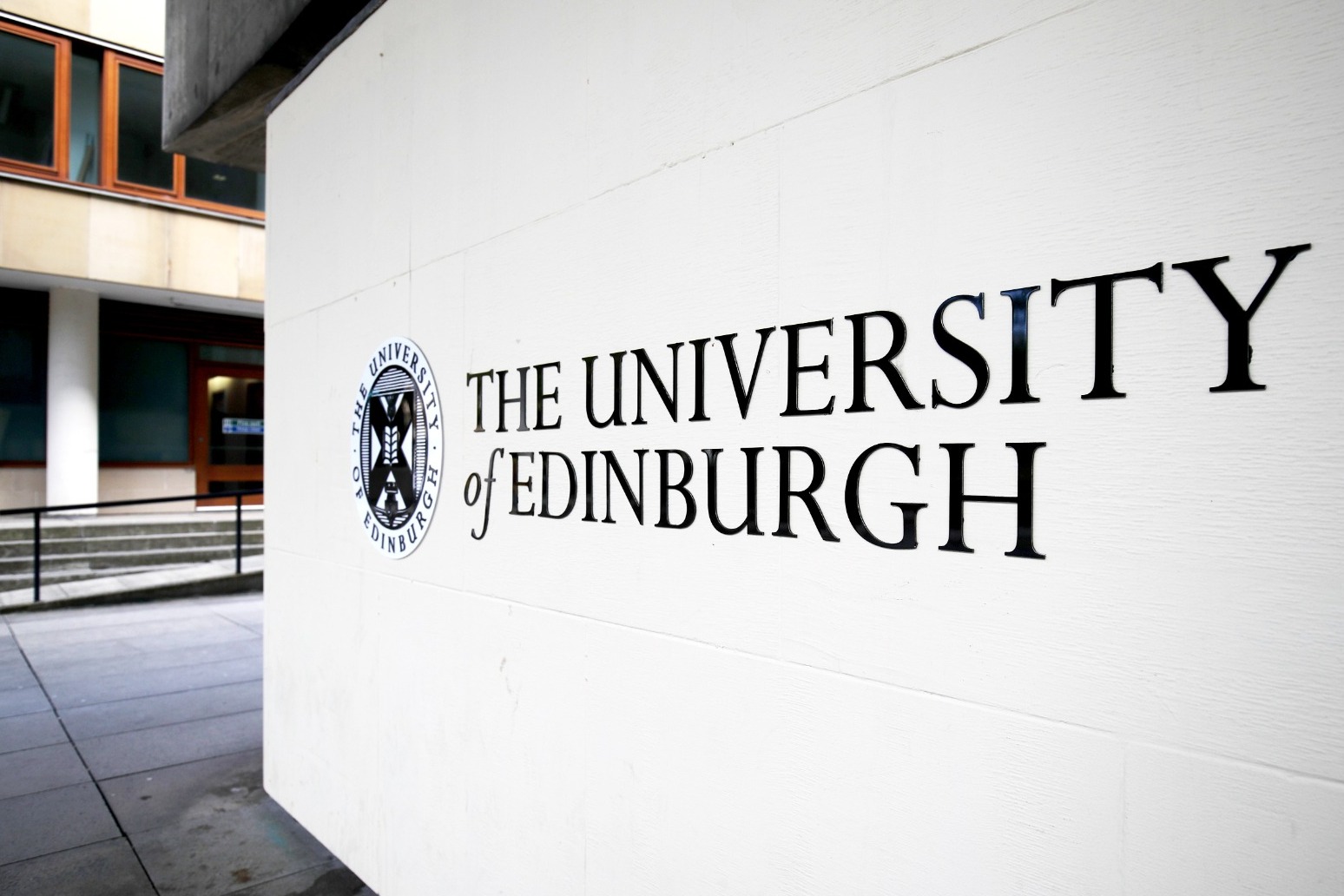
First Minister Humza Yousaf has rejected calls from a prominent university principal for “calm consideration” of charging graduates for their education.
Edinburgh University head Professor Sir Peter Mathieson said such a move – which would end the policy of free university tuition – is a matter for politicians and is “beyond my control”, but it could allow for Government funding to be spent on improving institutions.
But within hours, the First Minister rejected the idea.
“I don’t agree,” he told journalists at an energy conference in Glasgow.
“I have a lot of time for the principal of Edinburgh University, but I believe that education, university education in particular, should be based on the ability to learn, not the ability to pay.
“There will be no movement at all from the Scottish Government in relation to free tuition.”
The introduction of free university tuition has been a flagship commitment from the SNP, with legislation to scrap the graduate endowment introduced soon after the party came to power in 2007, and passed by Holyrood early in 2008.
The policy was championed by former first minister Nicola Sturgeon and her predecessor Alex Salmond, who had his claim that “the rocks will melt with the sun before I allow tuition fees to be imposed on Scotland’s students” inscribed on a stone as a monument when he stepped down from office.
But Sir Peter said the current system, in which Scottish students do not pay tuition fees if they study at institutions north of the border, results in “talent and money leaving Scotland”.
His comments come after think tank Reform Scotland last year called on the Scottish Government to abandon its long standing policy, suggesting instead that graduates should “pay the Government back for a proportion of their university fees when they earn enough money to do so”.
Sir Peter said that move could potentially allow Government funding for universities to be improved – or for the cap on the number of Scottish students to be raised.
Writing in the Herald, he added: “Wealthy families in Scotland can currently pay for their offspring to go to university in England or abroad but not in Scotland, therefore talent and money are leaving Scotland.
“Changing any of this would be a political decision beyond my control, but it is worthy of calm consideration.”
Sir Peter said the funding his university receives from the Scottish Government to cover the fees of Scots students is “inadequate to pay the full costs of their education”.
He refuted suggestions the university has turned down Scottish applicants in favour of those from the rest of the UK (RUK) or overseas, who can be charged more for their studies.
He said that idea is “unfounded”, adding the number of Scottish students that can been taken on is capped by the Government as “an inescapable consequence of its policy to pay tuition fees for this group”.
He added: “We are penalised if we under-recruit, so we always aim to be on target.
“The number of overseas or RUK students that we take has no effect on the chances of Scottish-domiciled applicants, RUK and international applicants are considered as separate groups.”
He also said changes have been made to the selection process after the most recent intake of law students at his university saw all Scottish students accepted on to the course coming from deprived backgrounds.
Sir Peter said the university’s response had been “to adjust our procedures to ensure that the same does not happen again”, though he insisted this would not stop efforts to help more disadvantaged youngsters gaining a university place.
“There will be no U-turns on our desire to ‘level the playing field’ for less-advantaged applicants whilst I am the principal,” he stressed.
Published: by Radio NewsHub

